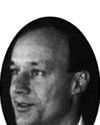Mr. Speaker, I am more than pleased to speak in the House today regarding Bill C-23, the Nuclear Safety and Control Act.
The current legislation in this area is 50 years old. As the minister noted earlier, it suffers from several deficiencies and is outdated. The development application and the use of nuclear technology for peaceful purposes brings many benefits to Canada. However, it also entails some important responsibilities.
It is high time we had modern legislation to govern the regulation of nuclear activities. The benefits of nuclear technology include a safe and secure supply of energy, some 26,000 direct and 10,000 indirect jobs and significant export revenues from the sale of Candu reactors and uranium.
Nuclear science has brought us advanced medical treatments, agriculture and scientific applications and real environmental advantages. To maximize these benefits and minimize the risks, Canada has had to take certain precautions to protect public health and safety as well as the environment.
Canadians insist on very high standards for the regulation of nuclear activity, higher than for most other forms of technology.
Since 1946 the agency charged with enforcing those standards, the Atomic Energy Control Board, has done an excellent job. Its vigilance is one reason that Canada has an enviable nuclear safety record. However, the agency needs our help.
I would like to take a few minutes to expand on the role of the AECB and to demonstrate why a new, modern framework is needed to ensure that the nuclear regulatory authority in Canada can continue to fulfil its mandate.
As has already been mentioned, the Atomic Energy Control Act was proclaimed in 1946, shortly after the end of the second world war. Apart from one amendment in 1954, the act has remained essentially unchanged for half a century. During that time there have been dramatic changes in the extent and nature of nuclear activities in Canada and abroad and in society's expectations of government regulations. There has also been a shift in emphasis at the AECB. The agency continues to be concerned with the security of nuclear information and materials. Today, however, most of its activities focus on regulating the health, safety and environmental aspects of nuclear technology.
In fact, these have been the most important issues for the AECB since 1960 when the first health and safety regulations were established under the Atomic Energy Control Act. In the 1970s and 1980s concern for the environment surged to the forefront of the public agenda. This has also helped shape the AECB's modern mandate.
Let me say a few words about how the AECB operates. The AECB is an independent regulatory agency reporting to Parliament through the Minister of Natural Resources. It is directed by a five member board, one of whom is the president of the board.
The president of the board supervises approximately 400 officers and staff. Most of these employees are based at the AECB headquarters in Ottawa-





